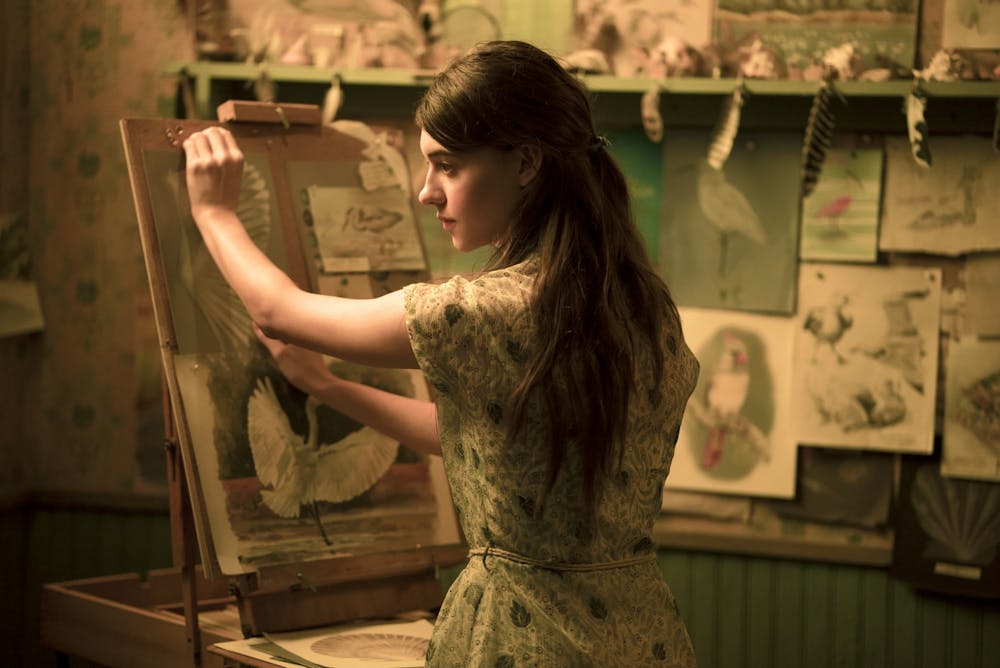I had virtually no expectations going into “Where the Crawdads Sing.” Because I hadn’t read the book and never saw the trailer, I only knew a little bit about the plot of the film. But, I saw that “Normal People” breakout star Daisy Edgar-Jones was going to play the lead, and that was enough reason for me to give the film a chance.
Unfortunately, what followed was two hours of nothingness: a film so bland in its execution that even a charismatic actress like Jones couldn’t bring life to its lackluster screenplay.
“Where the Crawdads Sing” follows a young woman, Kya (Daisy Edgar Jones), who has lived alone in a North Carolina marsh since she was a little girl. She narrates the story of her life as she stands trial for the murder of Chase Andrews (Harris Dickinson), a young man with whom she had a relationship. The film was directed by Olivia Newman.
“Where the Crawdads Sing” is not entirely bad; as I said, Jones is a star. Even though the British actress may be slightly miscast, you can tell that she tried her best to embody the eccentric “marsh girl.” The romantic chemistry between her and Taylor John Smith who plays Tate, a childhood friend turned lover, is also very strong. Their scenes together were the best part of the entire film.
But, a few good performances can’t cover up bad writing. Without even reading the novel, I can tell that “Where the Crawdads Sing” is a cinematic book report. It seems as though they copy and pasted the plot points, disregarding the fact that they would need to alter some things for the sake of cinematic storytelling in the process. None of the story elements are fleshed out enough to be satisfying, and the result is a shallow retelling of a story better fit for the page.
Because of this, the film’s pacing was, to put it simply, atrocious. Somehow, an incredibly intriguing premise became a chore to sit through. We only spend a few minutes actually in the courtroom witnessing Kya’s trial. The rest of the time is spent developing two romances that never become interesting enough to watch play out.
The non-linear storytelling structure also affected this. Most of the story is told to us through Kya’s vague narration as she sits in her jail cell talking to the lawyer who has offered to defend her in court. Because it takes so long to introduce the character of Chase Andrews, there’s no sense of urgency or excitement to the story. Even then, his introduction is so mundane and his character is so stereotypical that my interest in uncovering the mystery of his death completely faded away with each southern accent-laden, vaguely manipulative line he spoke.
The direction is also uninspired. Newman didn’t bring any distinct voice to the story, instead letting the novel do the heavy lifting for her. The film doesn’t feel like it was directed by someone with a confident sense of their own filmmaking style.
By the time the film ended, I was on the verge of laughter. Partly due to the incredibly abrupt yet incredibly important revelation that occurs in the final minute of the film, but mainly because of how sterile this film is. There was so much potential for “Where the Crawdads Sing” to be a gripping mystery, but instead, it’s a forgettable film adaptation with no real artistic merit behind it.
Nevertheless, it is undeniably fun to watch two British actors, Jones and Dickinson, attempt southern accents for two hours.




